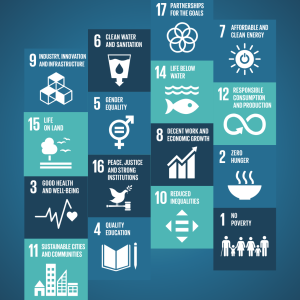Indicators in this domain assess the extent to which migrants have the same status as citizens in terms of access to basic social services such as health, education, and social security. It also describes the rights of migrants to family reunification, to work, and to residency and citizenship. The ratification of the main international conventions is also included within this domain.
Indicators in this category look at the extent to which migrants have access to certain social services such as health, education and social security. They also examine measures to ensure integration and access to work.
Indicators in this domain assess countries’ institutional, legal, and regulatory frameworks related to migration policies. Domain 2 also reviews the existence of national migration strategies that are in-line with development, as well as institutional transparency and coherence in relation to migration management. This domain also investigates the extent to which governments collect and use migration data.
Indicators in this category assess the institutional frameworks of cities for migration. This area also examines the existence of migration strategies consistent with development objectives, as well as institutional transparency and coherence in migration management.
This domain focuses on countries’ efforts to cooperate on migration-related issues with other states and with relevant non-governmental actors, including civil society organizations and the private sector. Cooperation can lead to improvements in governance by aligning and raising standards, increasing dialogue and providing structures to overcome challenges.
Indicators in this category focus on cities’ efforts to cooperate on migration issues with the national government as well as other cities and relevant non-governmental actors, including civil society organizations and the private sector.
This domain includes indicators on countries’ policies for managing the socioeconomic well-being of migrants, through aspects such as the recognition of migrants’ educational and professional qualifications, provisions regulating student migration and the existence of bilateral labour agreements between countries. Indicators equally focus on policies and strategies related to diaspora engagement and migrant remittances.
Indicators in this category assess cities’ initiatives in terms of international student mobility, access to the labour market and decent working conditions for migrant workers. Aspects related to diaspora engagement and migrant remittances are also included in this domain.
This domain studies the type and level of preparedness of countries when they are faced with mobility dimensions of crises, linked to either disasters, the environment and/or conflict. The questions are used to identify the processes in place for nationals and non-nationals both during and after disasters, including whether humanitarian assistance is equally available to migrants as it is to citizens.
Indicators in this category examine the type and level of readiness of cities to deal with aspects of mobility crises. The questions focus on the processes in place for citizens and non-citizens both during and after disasters, especially if humanitarian assistance is available for migrants and citizens.
This domain analyses countries’ approach to migration management in terms of border control and enforcement policies, admission criteria for migrants, preparedness and resilience in the case of significant and unexpected migration flows, as well as the fight against trafficking in human beings and smuggling of migrants. It also assesses efforts and incentives to help integrate returning citizens.
Indicators in this category look at the cities’ approaches to migrant safety as well as return and reintegration policies and the fight against trafficking in persons.
This local Profile describes examples of well-developed areas of Tbilisi (Georgia)’s governance structures and areas with potential for further development, as evaluated through the six domains of the Migration Governance Indicators (MGI). These address migrants’ rights, a “whole-of-government” approach, partnerships, socioeconomic well-being of migrants, the mobility dimesnsions of crises, and safe and orderly migration.
Click the icons on the wheel to explore the key findings.
The Migration Governance Indicators (MGI) initiative is a policy-benchmarking programme led by the International Organization for Migration (IOM) and implemented with research and analysis from the Economist Impact. Funding is provided by IOM Member States.
Migration Governance: examples of well-developed areas
- The municipality of Tbilisi facilitates access to government-funded health services for migrants. The Law of Georgia on the Legal Status of Aliens and Stateless Persons (2014) explicitly recognizes the right of foreign nationals in the country to receive health care.
- All migrants in Tbilisi, regardless of migration status, have access to early childhood (preschool and kindergarten), primary and secondary education based on national-level provisions.
- The municipality of Tbilisi provides migrants access to legal support on an ad hoc basis through collaborations with local civil society organizations.
- Under the national-level Programme to Support Reintegration of Returned Migrants (2015), return migrants in Tbilisi can access housing assistance.
Areas with potential for further development
- Tbilisi does not have targeted strategies or programmes to support the inclusion or integration of migrants in general education.
- The municipality lacks welcome or orientation programs for newly arrived migrants, representing an area with potential for further development.
- Tbilisi does not offer assistance to those wishing to emigrate; however, there is a Migrant Resource Center (run by IOM) offering pre-migration information and counseling to prospective migrants.
Migration Governance: examples of well-developed areas
- The Tbilisi municipal Department of Economic Development coordinates with the Georgian diaspora for specific activities such as the Local Economic Development Forum in 2022, which included a side session on migration.
- Since 2021, the municipality has participated in the IOM-led Sustainable Reintegration and Community Revitalization Pilot Initiative in Communities of Return project, which provides information about services to returnees.
Areas with potential for further development
- The municipality does not engage with the State Commission on Migration Issues, a national-level consultative body to address migration-related issues.
- Tbilisi lacks an agency or department dedicated to coordinating migrant services, with no established coordination mechanism among local agencies and departments to address migration issues.
- Mainstreaming migration in the Tbilisi City municipal development strategy as an integral part of this programmatic document, in alignment with national and international development agendas, is an area for further development .
- The municipality of Tbilisi does not collect or publish local-level statistics on migration.
Migration Governance: examples of well-developed areas
- The municipality of Tbilisi participates in international networks that support the exchange of knowledge and good practices in resolving migration issues.
- The Department of Economic Development of Tbilisi cooperates on migration issues with IOM and United Nations Development Programme (UNDP).
- Local authorities cooperate with the private sector and academia to implement programmes targeting the general population, including migrants.
Areas with potential for further development
- The municipality of Tbilisi does not formally collaborate with migrant associations, diaspora members, or expatriate communities in implementing migration-related policies and programs.
- Establishing national bilateral and international city-to-city cooperation programs focusing on international migration is an area with potential for development.
Migration Governance: examples of well-developed areas
- The municipality’s Gender Strategy 2023–2025 (2023), coordinated and implemented by the Gender Equality Council, aims to support women’s equitable access to employment and public services.
- Through the Learn and Work programme, local authorities promote and facilitate the inclusion of immigrant workers in the labour force.
- The business development division of Enterprise Georgia offers two entrepreneurship promotion and support programs in Tbilisi: the Credit Guarantee Mechanism and the Subsidized Mortgage Loan, launched in 2019 and 2021 respectively.
Areas with potential for further development
- There is no municipal-level assessment for monitoring the local labour market demand for immigrants or the local labour supply and the effects of emigration on the labour market.
- The establishment of specific measures to promote the ethical recruitment of migrant workers is an area with potential for development.
- The implementation of measures by the local government to support employers in employing foreign citizens is an area with potential for further development.
Migration Governance: examples of well-developed areas
- The Law of Georgia on Public Safety (2014) mandates the establishment of a local emergency management operations center by the head of the local self-government unit (the Mayor).
- The municipality of Tbilisi has formulated action plans and strategies aimed at promoting sustainability and reducing human activities associated with climate change.
- Tbilisi has two-way communication systems in place for emergency response that consider the specific vulnerabilities faced by migrants. Information is communicated in English, Russian, Turkish, Armenian, and Azerbaijani.
Areas with potential for further development
- Enhancing the development of a framework for emergency management that includes specific actions to help migrants in times of crisis, as well as a strategy for reducing the risk of disasters that takes into account the effects of displacement and a plan for dealing with large-scale movements of people.
- The Tbilisi Local Economic Development Plan (2020) does not include specific measures related to displacement – either for internally displaced persons (IDPs) or refugees and asylum-seekers.
- Establishing referral systems with key actors to aid migrants during emergencies is an area with potential for development.
Migration Governance: examples of well-developed areas
- Local government workers receive training on gender-related concerns, and the prevention of gender-based discrimination.
- Local authorities have taken steps to facilitate the arrival of refugee groups under their jurisdiction.
- The municipality of Tbilisi promotes migrant reintegration programmes especially through the Sustainable Reintegration and Community Revitalization Pilot Initiative in Communities of Return project, spanning from 2020 to April 2023.
Areas with potential for further development
- While some actions related to human trafficking are implemented, Tbilisi does not yet have a dedicated municipal agency or strategy to combat human trafficking, or specific measures to combat the labour exploitation of migrants.
- There is no local strategy and/or protocol for the identification of missing migrants and providing support for their families, nor is there a local body in charge of this issue.
2023 November


